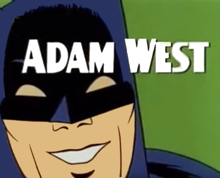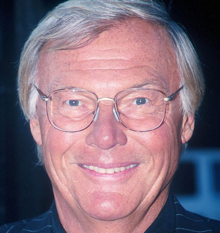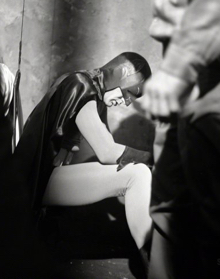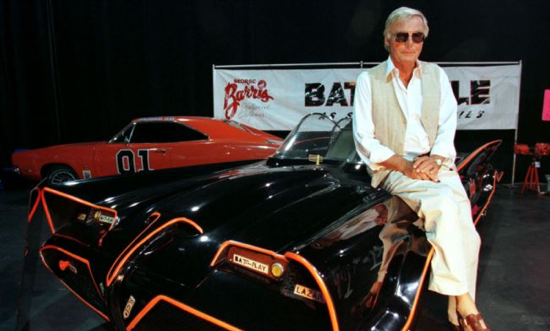Mike Gold: Adam West Saved More Than Just The Universe
 ComicMix’s crack legal columnist Bob Ingersoll is more than just a lawyer with a great wit, although that would be enough. For decades, Bob has been my go-to guy on the subject of television minutiae. So, it came as no surprise when he was the first to tell me and a group of our friends that Adam West died.
ComicMix’s crack legal columnist Bob Ingersoll is more than just a lawyer with a great wit, although that would be enough. For decades, Bob has been my go-to guy on the subject of television minutiae. So, it came as no surprise when he was the first to tell me and a group of our friends that Adam West died.
Yep, that sucks. Last week at this time, it would have been difficult to find a nicer guy in show business. Most of us are well aware of West’s résumé and I won’t bore you with it at this late date. Here’s the IMDB link – be sure to come back now, y’hear? But there’s one fun fact we tend to overlook.
Adam West saved the American comic book industry.
It was not a great time for the comic book racket. The founding families still owned most of the big players – DC, Marvel, Harvey, Archie – and unless you were Dell Comics, you were pretty much entirely dependent upon newsstand sales. The problem was, the newsstands were disappearing faster than a speeding bullet. The mom ‘n’ pop candy, grocery and magazine stores were dying off like the last reel of a Michael Crichton movie. The neighborhood newsstand, a product of our larger cities, were being urban-renewed into oblivion. Local drug stores were vaporizing before our very eyes.
 What replaced all this stuff were big chain stores and huge shopping malls. The problem with these places was profitability. These stores measure profit in “turns” or how fast the product sells, and in “per-square-foot” increments. In response, the Comics Magazine Association of America developed large spinner racks that could hold maybe 500 comic books in a few square feet. The problem here is that policing comic book racks is expensive and takes a lot of time, and there’s not much profit in a 10-cent item.
What replaced all this stuff were big chain stores and huge shopping malls. The problem with these places was profitability. These stores measure profit in “turns” or how fast the product sells, and in “per-square-foot” increments. In response, the Comics Magazine Association of America developed large spinner racks that could hold maybe 500 comic books in a few square feet. The problem here is that policing comic book racks is expensive and takes a lot of time, and there’s not much profit in a 10-cent item.
In response, in 1961 the publishers raised the cover price 20%. Too little, way too late. It turns out there’s not much profit in a 12-cent item, either.
Publishers had been going out of business since the market started to turn south in the late 1940s. By the mid-50s some of the big guys – Quality, Fawcett, Fiction House, EC Comics – no longer survived. You’d think Fredrick Wertham had written another book. Despite Marvel’s slowly growing success, things looked bleak indeed.
And then, in January 1966, ABC-TV started broadcasting a twice-weekly series titled Batman, starring Adam West. The show went through the roof… and virtually all of the surviving comics publishers started adding more superhero product to their line. And these books sold. Some outlets that didn’t carry comics started doing so. For the first time, paperback reprints from a wide variety of publishers became widespread. Tower Comics (T.H.U.N.D.E.R. Agents, et al) burst onto the scene in the fall of 1965, just as the Batman hype was gathering steam. As such, they were a bit ahead of the curve.
Tower was joined by King Comics, Archie’s superhero imprint Mighty Comics, Lightning Comics (Fatman the Human Flying Saucer, Super Green Beret), and Myron Fass’s M.F. Enterprises (Captain Marvel, Eerie Publications – which was a horror imprint).
 Television fads suffer from the laws of gravity, and the Batman craze only lasted a couple years. The other shows produced by Batman’s William Dozier either died after one year (Green Hornet) or never got off the ground (Wonder Woman, Dick Tracy). None of the aforementioned new publishers lasted very long, with the exception of Fass’s Eerie Publications.
Television fads suffer from the laws of gravity, and the Batman craze only lasted a couple years. The other shows produced by Batman’s William Dozier either died after one year (Green Hornet) or never got off the ground (Wonder Woman, Dick Tracy). None of the aforementioned new publishers lasted very long, with the exception of Fass’s Eerie Publications.
However, in their wake, they left a much stronger DC Comics and an even stronger still Marvel Comics, particularly after Marvel got out from under their distribution deal with DC Comics’ Independent News Distributors – later known as Warner Publishing Services – in 1969.
I place the success of the Batman show and its dramatic impact on the American comic book publishing field at Adam West’s feet. Of course, if West had not been cast the program might have been as big a success. That’s something that we cannot divine. But Adam West did pull it off and he did so masterfully. West had the perfect approach for the material, simultaneously being heroic, “unknowingly” ironic, paternal, and strong of ability, spirit, and character. No easy feat.
More important, West had a great attitude about his work. After a brief period of trying to break out of the stereotype, he embraced the cape and cowl and renewed his work as Batman in television specials, in animated cartoons, and in public appearances. In fact, his last such effort – Batman vs Two-Face, starring West, Burt Ward, Julie Newmar and William Shatner as the titled bad guy – will be released later this year.
His death last week made the top of the CBS radio news. It received break-ins on all media and the headline zippers on cable news shows. It set the Internet ablaze. Adam West was, and remains, a part of our American culture.
Adam West was, and remains, a major part of comic book history.












